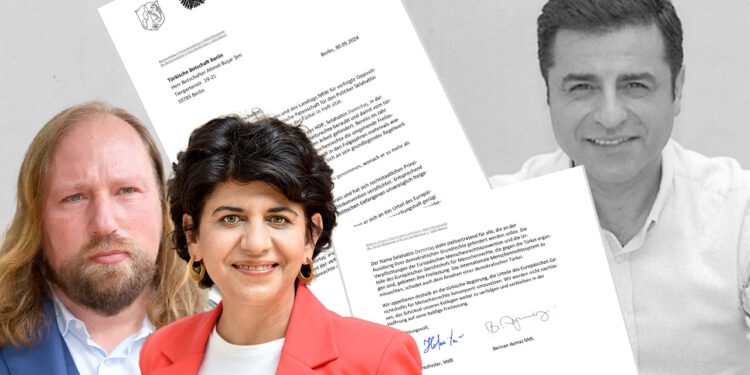German politicians urge Turkey to release former HDP co-chair Selahattin Demirtaş, highlighting systematic political obstruction and violations of European human rights commitments.

German politicians have pled to Turkey’s ambassador in Berlin, urging the release of Selahattin Demirtaş, the former co-chair of the pro-Kurdish Peoples’ Democratic Party (HDP), who has been detained since 2016.
Berivan Aymaz and Anton Hofreiter, leaders from North Rhine-Westphalia’s state parliament and the German Federal Parliament’s Committee on European Union Affairs respectively, penned the letter highlighting the political and legal injustices surrounding Demirtaş’s imprisonment.
“On learning that Mr. Demirtaş has been sentenced to 42 years in prison [in the Kobane case], we are deeply saddened,” said the politicians in their letter. They stressed the European Court of Human Rights’ (ECtHR) repeated rulings since 2018 demanding his immediate release, underscoring that adherence to these rulings is a legal obligation for all Council of Europe (CoE) members, including Turkey.
The letter also notes Turkish President Recep Tayyip Erdoğan’s dismissal of the ECtHR’s binding decisions, stating that they do not bind him personally. This stance is seen as a direct challenge to the obligations Turkey has under the CoE to its commitments to the principles of a rule of law and the European Convention on Human Rights.
Furthermore, the politicians expressed concern that non-compliance with international human rights standards damages Turkey’s democratic image. “We will continue to monitor our colleague’s fate and maintain hope for his immediate release,” they added, calling on the Turkish government to immediately implement the ECtHR’s rulings.
The backdrop to this international appeal is the ongoing Kobane case in Ankara’s 22nd High Criminal Court, where Demirtaş and other former HDP leaders have faced trials that resulted in severe sentences, with Demirtaş himself receiving a 42-year prison term after seven and a half years of incarceration. This case has intensified international scrutiny and criticism regarding Turkey’s adherence to democratic values and human rights.








Leave A Comment